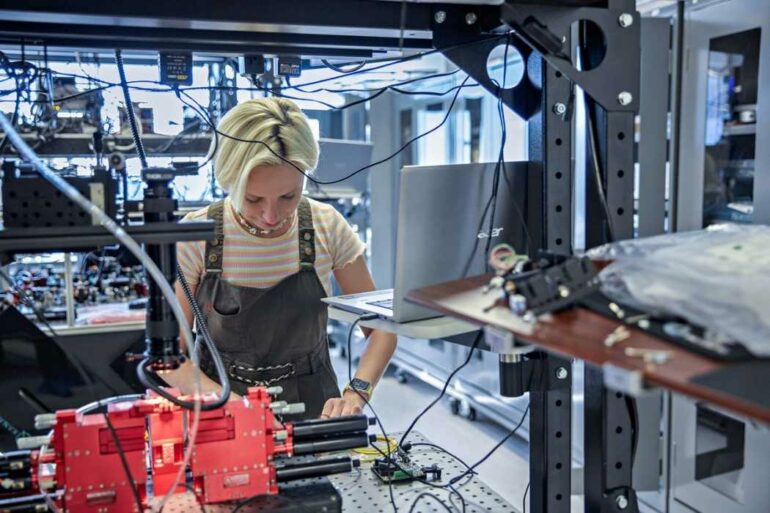Xanadu has unveiled a pair of partnerships that it claims will speed up development of photonic quantum computing chips and data centres.
The US Defense Advanced Research Projects Agency (DARPA) recently chose Xanadu and two fellow Canadian companies to participate in a research program to build a full-fledged quantum computer by 2033.
The Toronto company is teaming up with Santa Clara, Calif.-based manufacturing firm Applied Materials to develop what it says is the first 300-millimetre “high-volume compatible” manufacturing process for superconducting transition edge sensors. These are “key elements” for preparing the state of a qubit (quantum bit) in Xanadu’s photonic quantum computers, according to the firm.
The deal will let Xanadu wield the “most advanced fabrication tools” to make “higher quality and better-performing” products, according to Elliott Ortmann, Xanadu’s head of fabrication process engineering.
Xanadu has also unveiled a four-year research and development (R&D) agreement with the United States (US) Air Force Research Laboratory (AFRL) to accelerate work on silicon-based photonic integrated circuits for quantum purposes. The move is intended to combine AFRL’s know-how in launching advanced technology with Xanadu’s work on both photonic quantum computing and chip-level integration.
Xanadu will get access to AFRL’s process design tools for silicon photonic circuits. In turn, the Canadian company will offer feedback that helps AFRL customize its chip designs for quantum tasks. The two partners will jointly explore commercial uses and production roadmaps while sharing other knowledge. The US Air Force also envisions “military applications.”
RELATED: Three Canadian quantum startups selected for US military-backed quantum race program
Xanadu was founded in 2016 and has secured multiple large funding rounds as part of its plans to develop quantum data centres, including a $100-million USD Series C in 2022. That series was led by Georgian but also included big names like Porsche, Silicon Valley Bank, and star venture capitalist Tim Draper.
Xanadu founder Christian Weedbrook told BetaKit in May 2024 that he was hoping to raise between $100 million to $200 million USD by early 2025 to develop quantum computing hardware.
While that funding has yet to materialize, Xanadu has claimed progress in 2025. It bills its new Aurora system as a breakthrough in networked, “utility-scale” quantum computers that can solve real problems. It also announced a partnership with glass producer Corning to help network quantum chips using fibre optics and arrays.
The company isn’t alone in cooperating with the American military. The US Defense Advanced Research Projects Agency (DARPA) recently chose Xanadu and two fellow Canadian companies, Vancouver’s Photonic and Sherbrooke, Que.’s Nord Quantique, to participate in a research program that aims to build a full-fledged quantum computer by 2033. Xanadu also faces competition from abroad, including Microsoft’s experimental Majorana 1 chip. That part potentially enables million-qubit systems that complete tasks impractical for conventional computers.
Feature image courtesy of Xanadu.


